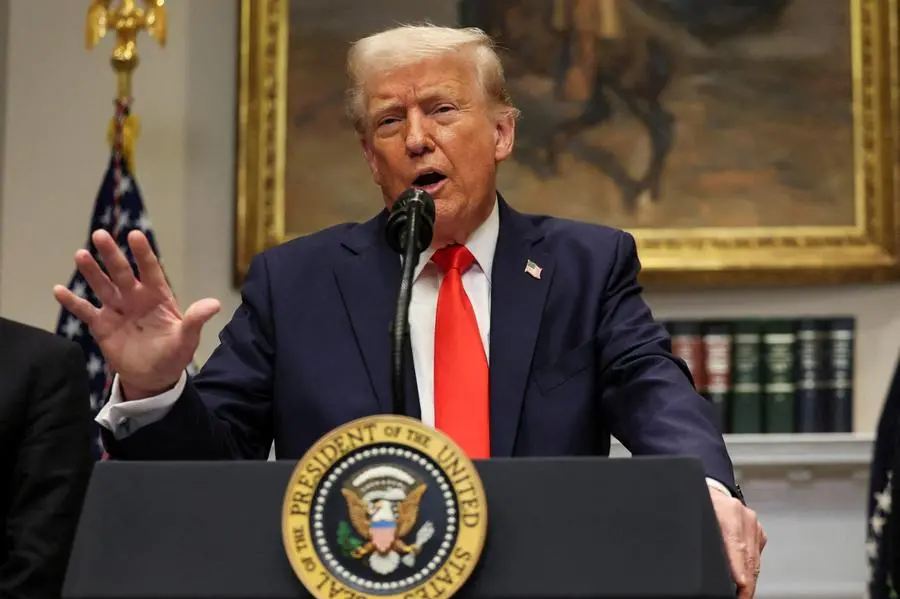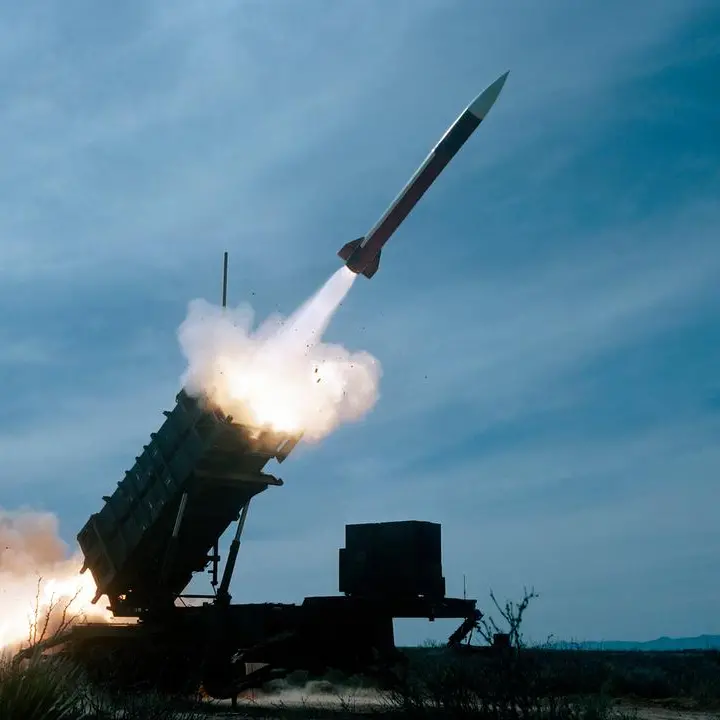PHOTO
Global auto stocks tumbled and governments from Ottawa to Berlin threatened retaliation on Thursday after U.S. President Donald Trump unveiled a 25% tariff on imported vehicles, expanding a global trade war and testing already strained ties with allies.
The new levies on cars and light trucks will take effect on April 3, the day after Trump plans to announce reciprocal tariffs aimed at the countries he says are responsible for the bulk of the U.S. trade deficit.
The U.S. imported $474 billion worth of automotive products in 2024, including passenger cars worth $220 billion. Mexico, Japan, South Korea, Canada and Germany, all close U.S. allies, were the biggest suppliers.
The tariffs are a sucker punch for Europe at a time when relations with Washington have plummeted over issues such as the war in Ukraine and the upending of a decades-old Transatlantic alliance, with the U.S. as the ultimate guarantor of European security.
European Commission President Ursula von der Leyen described the move as "bad for businesses, worse for consumers," while Canadian Prime Minister Mark Carney labeled the tariffs a "direct attack" on Canadian workers and said retaliatory measures were being considered.
"We will defend our workers, we will defend our companies, we will defend our country, and we will defend it together," Carney told reporters in Ottawa.
With billions of euros wiped from German auto shares on Thursday morning, German Economy Minister Robert Habeck called for a tough stance.
"What counts now is to have a firm response to these tariffs from the EU. It needs to be clear that we will not take this lying down," he said in a statement, adding that the EU needs to seek a negotiated solution.
Underscoring the jitters in Europe's biggest economy, where carmakers are buckling under high costs and tough foreign competition, the head of Germany's car industry association said the tariffs are a "fatal signal" for global trade.
China's foreign ministry said the U.S. approach violates World Trade Organization rules, undermines the multilateral trade system and was "not conducive to solving its own problems."
"No country's development and prosperity are achieved by imposing tariffs," spokesperson Guo Jiakun said at a regular news briefing on Thursday.
PRAISE AND CRITICISM
Automakers such as Toyota Motor and Mazda Motor led declines in stocks in Japan, which relies on autos for more than a quarter of its exports to the U.S. while shares of automakers in South Korea and India also slid.
Shares of U.S. automakers, which are highly integrated with plants and suppliers in Canada and Mexico, were lower in pre-market trading.
Japanese Prime Minister Shigeru Ishiba said Tokyo will put "all options on the table" in dealing with the new tariffs and South Korea said it would put in place an emergency response for its hard-hit auto industry by April.
Brazil's President Luiz Inacio Lula da Silva said Trump risked damaging the U.S. economy with additional tariffs and also vowed to lodge a complaint with the World Trade Organization over a trade levy on Brazilian steel.
Trump sees tariffs as a tool to raise revenue to offset his promised tax cuts and to revive a long-declining U.S. industrial base.
Many trade experts, however, expect prices to initially rise and demand to fall, hurting a global auto industry that is already reeling from uncertainty caused by Trump's rapid-fire tariff threats and occasional reversals.
Early on Thursday, Trump said he might hit the EU and Canada with larger tariffs if they teamed up to retaliate.
"If the European Union works with Canada in order to do economic harm to the USA, large scale Tariffs, far larger than currently planned, will be placed on them both in order to protect the best friend that each of those two countries has ever had," he said in a post on Truth Social.
The United Auto Workers, long-standing critics of free trade agreements it says have destroyed American jobs, lauded the Trump administration's move.
Volkswagen, Europe's top car maker, is in the frame since 43% of its U.S. sales are sourced from Mexico, S&P Global Mobility estimates.
Kyle Rodda, an analyst at Capital.com, said the big concern was that next week's announcement on reciprocal tariffs may not mark the end of the Trump administration's shake-up of global trade.
"This potentially drags out trade uncertainty even longer and raises the question of how radical a change to the global trade order is Trump trying to bring about," Rodda said.
(Reporting by Nandita Bose, Doina Chiacu, David Lawder, Andrea Shalal and David Shepardson in Washington; Additional reporting by Leika Kihara, Tim Kelly and Junko Fujita in Tokyo, Victoria Waldersee in Berlin, Kalea Hall in Detroit, David Ljunggren in Ottawa and Costas Pitas in Los Angeles, Lewis Jackson in Beijing; Writing by Lincoln Feast and Matthias Williams; Editing by Raju Gopalakrishnan and Sharon Singleton)





















